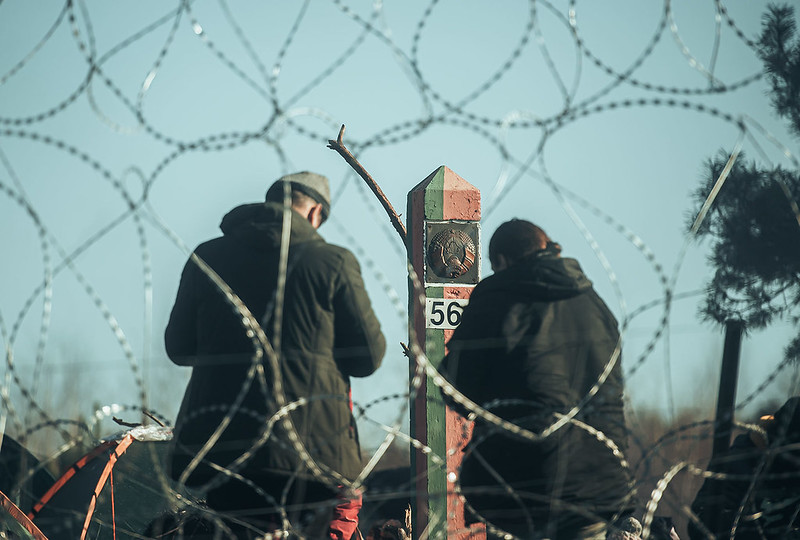Lukašenka’s Stance on the EU and Migration Crisis
 The situation has not changed
The situation has not changed

The Belarusian regime is signaling its intent to reestablish pragmatic relations with the European Union and to mend ties with neighboring countries. Presently, Aliaksandr Lukašenka is positioning himself as a supporter of a robust and independent EU, free from interference by the United States. He is once again emphasizing the issue of combating illegal migration and is demanding that the EU reinstate funding for relevant programs in exchange for Belarus’s cooperation in controlling migrant flows. Minsk believes that a new migration crisis in the Mediterranean, triggered by the escalating conflict in the Middle East, could help them achieve this goal. However, European partners remain skeptical of this proposal.
On October 26, Aliaksandr Lukašenka met with Hungarian Foreign Minister Peter Szijjártó and declared himself an “ardent supporter” of preserving the European Union, despite the sanctions imposed on Belarus. He justified his stance by highlighting the EU’s crucial role as one of the pillars of the existing world order, alongside the US, China, Russia, and India. Lukašenka argued that if the EU were to fall out of this system, it would have negative consequences for everyone. He also emphasized that Belarus is a European state and expressed strong support for the European Union to exist independently, free from the influence of the United States.
At the same time, Lukašenka attributed the migration crisis on the Belarusian border to the EU and expressed his willingness to address the issue through negotiations. He presented his version of events, suggesting that an influx of migrants into Belarus occurred after the start of the war in Ukraine, specifically after February 2022. Following these events, the EU imposed sanctions, halted funding for migration projects, and Belarus ceased detaining migrants. However, it is well-documented that the migration crisis began in late spring and summer 2021, and Belarus officially suspended the readmission agreement with the EU in November 2021.
Lukašenka also warned that the crisis on the Belarusian border is just the tip of the iceberg. He anticipates a new wave of migration in the Mediterranean due to the escalating conflict between Israel and the Hamas group in the Middle East. Additionally, Lukašenka confirmed that Belarus would not interfere with illegal migration flows until the EU reinstates funding for relevant programs.
European countries greeted the Belarusian dictator’s proposal with skepticism. This skepticism arises from the belief that Belarus plays a subordinate and instrumental role in implementing the Kremlin’s strategy of exerting migration pressure on the EU. Nearly all migrants recently apprehended by Polish border guards while attempting to cross the border from Belarus held recent Russian visas.
Lithuania plans to conduct regional exercises to test the procedure for closing borders with Belarus. This decision was made following a meeting of the heads of the Ministry of Internal Affairs of countries bordering Belarus and Russia, which includes Lithuania, Latvia, Estonia, Ukraine, Finland, Poland, and Norway. The meeting focused on issues related to hybrid threats, border security, and illegal migration. At the invitation of Lithuania, the Minister of Internal Affairs of Ukraine participated in the consultations.
During discussions with journalists, Lukašenka hinted at his readiness to improve relations with neighboring countries, particularly Poland. He expressed his willingness to extend a hand of friendship to anyone seeking peaceful relations and praised the Polish people for their role in changing the political landscape and bringing the opposition to power. Minsk is hopeful for a reset in relations with the new Polish government. However, Lukašenka noted that Poland has not yet responded to the “plan for peace and good neighborliness” proposed by Belarusian authorities. He recalled that he had instructed the government in June to develop this plan and offer a gesture of peace.
Subscribe to our newsletter




Situation in Belarus
Constitutional referendum: main consequences


 Video
Video
How to count the political prisoners: are the new criteria needed?


 Video
Video
Paternalism In Decline, Belarusian Euroscepticism, And The Influence Of Russia


 Video
Video












